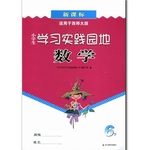题目内容
The lucky dog missed _______by his teacher, though he had made a big mistake.
A. to punish B. being punished
C. punishing D. to be punished
B
【解析】
试题分析:考察非谓语动词用法。固定搭配miss doing sth错过做某事;句意:这个幸运儿躲过被老师惩罚,尽管他犯了一个大错。根据句意可知使用动名词的否定形式。故B正确。
考点:考察非谓语动词

练习册系列答案
 学习实践园地系列答案
学习实践园地系列答案
相关题目